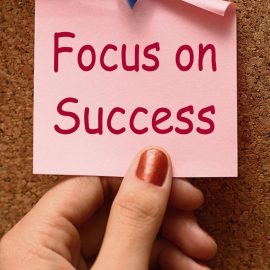

This article is an excerpt from the Shortform book guide to "Trillion Dollar Coach" by Bill Campbell. Shortform has the world's best summaries and analyses of books you should be reading.
Like this article? Sign up for a free trial here .
Do you want to know how to be a better listener? Why is listening critical as a manager and team member?
Bill Campbell, the Trillion Dollar Coach, emphasized the importance of listening to get better results. He offers some tips on how to be a better listener and examples for when it makes a big difference.
Read on for tips about how to be a better listener.
How to Be a Better Listener
The principle: If you want to know how to be a better listener, it comes down to listening to people with your full and undivided attention. Campbell believed that teams would be more successful if every team member felt like his or her opinion was thoroughly listened to, especially by the manager or team leader.
Since the 1950s, communications researchers have studied the importance of “active listening,” which means giving the person speaking your complete attention, not checking your phone for texts while they’re talking, not letting your mind wander, not interrupting or reacting, and not thinking about the next thing you’re going to say.
Today we might call this behavior “being present” in conversation with another person. It means a wholehearted attempt to fully grasp the speaker’s perspective. That’s how to be a better listener.
Campbell’s style of listening included asking many questions. It’s the classic Socratic method used in many college classrooms. When you listen closely to what someone is saying and ask relevant, probing questions that target the real issue, people feel encouraged to share more information. They also feel highly valued.
Supporting research: Studies on attention show that it’s typical for our minds to wander about half of the time that someone else is speaking. It’s easy to get distracted by external interruptions (loud conversations, emails, or Slack notifications) as well as inner distractions (like being in a bad mood or feeling hungry, tired, or uncomfortable). Any of these can impact your ability to be an active, attentive listener.
Don’t Make Decisions by Consensus
The principle: A manager’s job is to make the best ideas come to light, which should happen through discussion, not consensus. Democracy doesn’t work well in business (and neither does dictatorship). Campbell would not allow teams to make decisions by simple all-in-favor voting. He wanted to make sure that all perspectives were considered and thoroughly analyzed by the team before any decision was finalized.
Campbell recommended an “ensemble” approach to decision-making. All team members should put their ideas on the table. (To ensure the ideas were well-thought-out, Campbell often met with individuals prior to the meeting, allowing them to talk through their ideas before presenting them.) All perspectives should be heard and considered, and then the team should have an open debate about which idea was best. Heated discussions should be encouraged because dissenting opinions usually lead to better decisions. The best idea should rise to the top as the debate evolves.
If the team can’t decide on a best decision, then the manager has to step up, end the debate, and make a decision. Failure to make a decision can be worse than making a bad decision.
When decisions are particularly hard—either for the team or the manager—Campbell recommended that the decision-makers reframe the problem in terms of the company’s “first principles.” Every company has its own set of foundational principles that are the reason for the company or product. When faced with a tough decision, the leader or manager should always fall back on the company’s founding principles.
Example: When Brad Smith became CEO of Intuit, Campbell told him that he should let his teams make decisions through organized discussions. He said that 8 out of 10 times, the team would make a good decision on their own, but when they didn’t, Smith would have to make the call. Campbell called this the “King Arthur Round Table” decision-making model. Most of the time, the knights can figure it out. When they can’t, the king has to make a ruling.
Supporting research: Numerous communication studies have shown that when groups try to achieve consensus or make decisions by majority vote, poor decisions are made. “Groupthink” is a common problem—team members may not want to disrupt the team’s progress toward decision-making, so they won’t offer a dissenting opinion. Efforts to keep the peace, or not point out possible downsides to a largely popular solution, result in dysfunctional decision-making.
Exercise: How to Be a Better Listener
Most of us believe we are great listeners. But have you ever glanced at your text messages while someone is talking to you? Have you typed out an email while you’re engaged in a phone call or a meeting? Do you catch your mind wandering while someone is speaking? No one is a great listener 100 percent of the time, but we can all learn how to be a better listener.
- Think about two conversations you’ve had in the last week. Name the people who were speaking and what subjects they were talking about.
- Next, consider whether or not you were a fully attentive listener in those two situations. If you believe you were fully attentive, describe the good listening behaviors you demonstrated. If you weren’t fully attentive, list a few possible reasons that you were distracted.
- Now think about the good listening behaviors described in this chapter. Describe one technique you could employ to be a better listener.

———End of Preview———
Like what you just read? Read the rest of the world's best book summary and analysis of Bill Campbell's "Trillion Dollar Coach" at Shortform .
Here's what you'll find in our full Trillion Dollar Coach summary :
- How Bill Campbell went from football coach to tech coach
- The 4 pillars of Campbell's leadership philosophy
- How the King Arthur Round Table model for making decisions empowers employees






